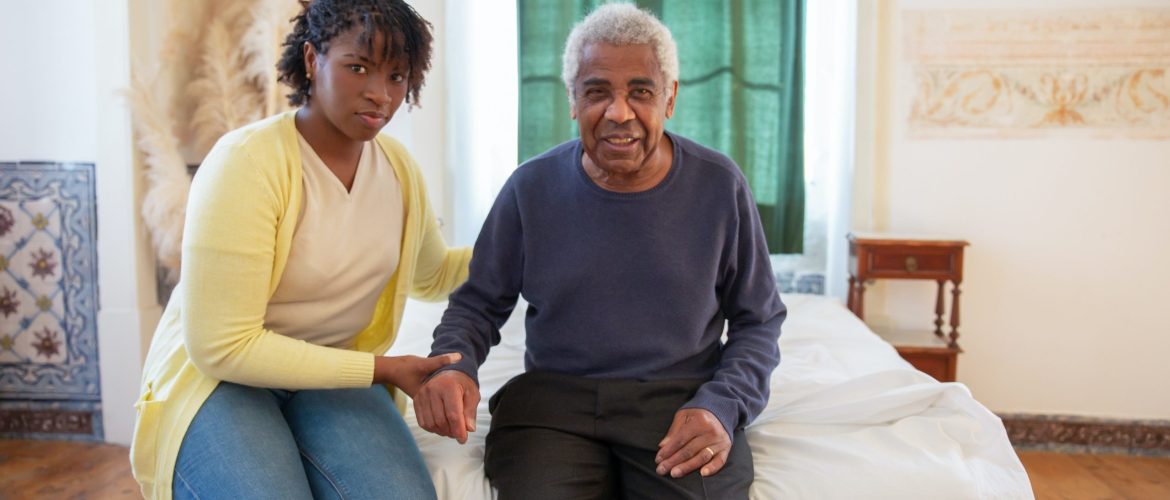How can caregivers provide an inclusive and respectful environment that recognizes and addresses the unique cultural backgrounds and experiences of individuals living with dementia? What is the difference between safe, professional care for people living with dementia, and culturally safe care? Our second episode of the Community of Innovation Podcast’s fifth season will answer that, and more.
Power imbalances occur in many situations, and they are especially prevalent in healthcare settings. A language barrier between an English-speaking physician and a client with little to no fluency is an example of a power imbalance. In many cases, this results in a less than ideal level of care delivery. When that client is living with dementia, or has experienced cultural trauma in the past, they can be afraid, confused, angry, or turn unresponsive when they feel they have lost control.
Culturally safe dementia care is about how care is delivered, not what care is delivered. It involves recognizing a power imbalance, engaging respectfully with a client and their family and care team, and actively listening to them.
“One in every four people in Canada identifies as being foreign-born… and it’s really important to understand why we need dementia care for those populations,” according to Ngozi Iroanyah, Director Health Equity and Access at Alzheimer Society of Ontario. Dementia care in Canada today doesn’t always take cultural considerations into account, however. Our Western approach to treatment can create gaps.
Chenny Xia, CEO of Gotcare points to the HHR crisis – the Health Human Resources crisis – which is reflected in the record-breaking wait lists for long-term care beds, hospital wait times, access to primary care (especially in rural settings), access to homecare. The HHR crisis has led to clients ‘taking what they can get’ rather than being cared for in a way that is appropriate to them. “Often a person with moderate or severe dementia regresses to their primary, or native, language,” says Chenny. “Then everything becomes a translation issue.” If a family member or hospital volunteer does that, the person is in a better position to advocate for themselves.
For Ngozi’s African Canadian family, there were no supports when her father was diagnosed with dementia – a diagnosis that comes with its share of stigma in her family. “There were no resources for racialized communities. How do we talk to our families about this? What can we do to slow down or avoid a dementia diagnosis? I knew professionally that nothing existed, but when I encountered it on a personal level, it was jarring,” she said.
Culturally safe dementia care also makes the care team’s jobs less stressful. It’s easier to feed a culturally appropriate meal to an older adult who is accustomed to eating Japanese food than struggling to make him eat an egg sandwich. If a woman wears a head covering because of her faith, don’t take it away. And as our guests tell us, always listen.
Key Highlights
Dr. Allison Sekuler: “One of the things that stood out for me was Chenny’s own experience as a caregiver to her father and how she advocates for culturally safe dementia care on his behalf.”
Dr. Rosanne Aleong: “People living with dementia are easily afraid or confused. It’s easy to understand why someone might want to be surrounded by people who look like them, who sound like them.”
Resources
Chenny
• Gotcare
Ngozi
• The Alzheimer’s Society
• iCare
• Egal
Learn more about our guests
As the CEO of Gotcare, Chenny Xia is transforming how healthcare in the home is delivered regardless of your postal code, including service to over 100 remote communities. Having scaled rapidly across the country, Gotcare has been recently named one of Canada’s fastest growing companies in 2023 by The Globe and Mail.
Ngozi Iroanyah is the Director of Health Equity and Access with the Alzheimer Society of Ontario where she develops and leads province-wide, equity-focused initiatives that build capacity, awareness, and strengthen programming within the Alzheimer Society of Ontario and its 26 local societies to support members of diverse communities.
About the Podcast
CABHI’s Community of Innovation podcast is where topics on ingenuity, aging and brain health collide. Join us as we talk to experts in healthcare, research, technology, and business, as well as older adults and their caregivers, about the innovative practices and healthtech solutions helping us all lead longer, healthier lives.
Support the Podcast
• Subscribe wherever you get your podcasts
• Donate to CABHI (through the Baycrest Foundation)
• Share this episode with a friend
• Do you have suggestions on future podcast topics or guests? Do you have questions you want answered? Reach out and let us know.


